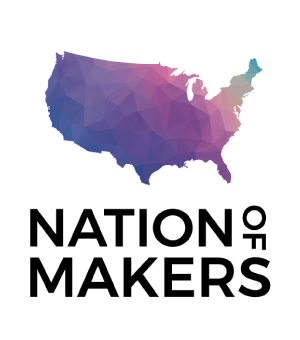Our History
Making is a relatively new term for the oldest traits of human society – creating an object (be it a new tool, some new food, language, art, platform, or express of social commentary), and then sharing that creation with others. Making is not unique to one group or culture, and has predominated all of human history in every area around the world. While the word “making” has its etymological roots in old English words for fitting (macian) and match, today’s usage was coined by Dale Dougherty, founder of Make Magazine and Maker Faire, as a way to describe the Do-It-Yourself mentality that has driven so much of the innovation and exploration across this country. Shortly thereafter, a separate group of individuals including Mitch Altman from the United States attending Chaos Champ in Europe began exploring the idea of creating hackerspaces back in the States. Around the same time as these two efforts, researchers at MIT such as Neil Gershenfeld launched an outreach effort to help spread the work they had been doing through the development of new rapid-prototyping processes (and the class How to Make (Almost) Anything), and called these spaces Fab Labs. Over the ensuing decade, all of these efforts combined with the additional passion of thousands of more individuals to give rise to hundreds of spaces, events, and organizations in all 50 states committed to fostering communities of all types and sizes throughout the entire country - and these exist in addition to the rich and diverse tapestry of making occurring in cultures, communities, neighborhoods, and families across that U.S. hat may or may not use the term “maker”.
The passion, innovation, entrepreneurship, and creativity of the maker community attracted even more people to it, and caught the attention of the team at the White House. President Obama hosted a White House Maker Faire and launched the President’s Nation of Makers Initiative in June of 2014. President Obama continued to champion the work and declared a National Week of Making in both 2015 and 2016 with Presidential Proclamations that called on even more organizations and institutions to support the ever-growing community of makers.
One such organization that responded to the President’s call was an independent nonprofit created in 2015 within the local DC community, started through a collaboration between AAAS Fellows, local makerspaces, the DC local government, that called itself NationofMakers.org. They set to work expanding making in the Nation’s capital by first co-producing the DC Mini Maker Faire and then helping with the National Maker Faire, by supporting the National Week of Making, as well as creating a #MakerMap initiative.
The White House continued to support the community in a variety of ways, including celebrating 10 individuals as Champions of Change for Making in June 2016, gathering one maker from every state during the 2016 National Week of Making, and convening makerspace, hackerspace, and FabLab organizers in August 2016.
Through a groundswell of community activity, which included the creation of online platforms around the convenings at the White House in 2016, the need and desire for a community of practice or trade association became clear. Over the course of the Fall 2016, hundreds of individuals participated in a deliberate process of identifying statements of needs, scouting for existing solutions, testing hypothesis, prototyping solutions, and then continuing through the process of iteration. In parallel, a group of eight individuals, the Nation of Makers Transition Group, were named to help propose an organizational structure to the community through which this collective action could continue.
As the proposals for a structure began, conversations were had with the existing DC-based Nation of Makers nonprofit, whose board recognized the collective need and benefit for a meta-organization and voted to contribute to the work by donating their domain name and other digital assets to the new organization. Their goal to “celebrate the creativity, ingenuity and diversity of America's Maker Community” continues to live on, both in how they as participate and continue to do important work within the maker community, but also as the name has been given to the meta-organization that works nationally to serve makers by serving maker organizations - our very own, Nation of Makers.
